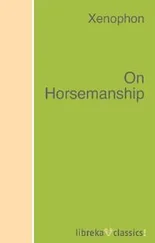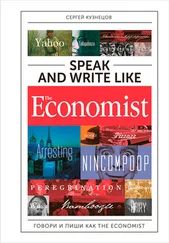Crit. Certainly.
Soc. Then would it not be more astonishing that she should have real knowledge how to speak and act than that she should go altogether astray?
Crit. But let me ask you a question, Socrates: have those happy husbands, you tell us of, who are blessed with good wives educated them themselves?
Soc. There is nothing like investigation. I will introduce you to Aspasia, (15) who will explain these matters to you in a far more scientific way than I can. My belief is that a good wife, being as she is the partner in a common estate, must needs be her husband's counterpoise and counterpart for good; since, if it is through the transactions of the husband, as a rule, that goods of all sorts find their way into the house, yet it is by means of the wife's economy and thrift that the greater part of the expenditure is checked, and on the successful issue or the mishandling of the same depends the increase or impoverishment of a whole estate. And so with regard to the remaining arts and sciences, I think I can point out to you the ablest performers in each case, if you feel you have any further need of help. (16)
(15) Aspasia. See "Mem." II. vi. 36.
(16) Al. "there are successful performers in each who will be happy to
illustrate any point in which you think you need," etc.
IV
But why need you illustrate all the sciences, Socrates? (Critobulus asked): it would not be very easy to discover efficient craftsmen of all the arts, and quite impossible to become skilled in all one's self. So, please, confine yourself to the nobler branches of knowledge as men regard them, such as it will best befit me to pursue with devotion; be so good as to point me out these and their performers, and, above all, contribute as far as in you lies the aid of your own personal instruction.
Soc. A good suggestion, Critobulus, for the base mechanic arts, so called, have got a bad name; and what is more, are held in ill repute by civilised communities, and not unreasonably; seeing they are the ruin of the bodies of all concerned in them, workers and overseers alike, who are forced to remain in sitting postures and to hug the loom, or else to crouch whole days confronting a furnace. Hand in hand with physical enervation follows apace enfeeblement of soul: while the demand which these base mechanic arts makes on the time of those employed in them leaves them no leisure to devote to the claims of friendship and the state. How can such folk be other than sorry friends and ill defenders of the fatherland? So much so that in some states, especially those reputed to be warlike, no citizen (1) is allowed to exercise any mechanical craft at all.
(1) "In the strict sense," e.g. the Spartiates in Sparta. See "Pol.
Lac." vii.; Newman, op. cit. i. 99, 103 foll.
Crit. Then which are the arts you would counsel us to engage in?
Soc. Well, we shall not be ashamed, I hope, to imitate the kings of Persia? (2) That monarch, it is said, regards amongst the noblest and most necessary pursuits two in particular, which are the arts of husbandry and war, and in these two he takes the strongest interest.
(2) "It won't make us blush actually to take a leaf out of the great
king's book." As to the Greek text at this point see the
commentators, and also a note by Mr. H. Richers in the "Classical
Review," x. 102.
What! (Critobulus exclaimed); do you, Socrates, really believe that the king of Persia pays a personal regard to husbandry, along with all his other cares?
Soc. We have only to investigate the matter, Critobulus, and I daresay we shall discover whether this is so or not. We are agreed that he takes strong interest in military matters; since, however numerous the tributary nations, there is a governor to each, and every governor has orders from the king what number of cavalry, archers, slingers and targeteers (3) it is his business to support, as adequate to control the subject population, or in case of hostile attack to defend the country. Apart from these the king keeps garrisons in all the citadels. The actual support of these devolves upon the governor, to whom the duty is assigned. The king himself meanwhile conducts the annual inspection and review of troops, both mercenary and other, that have orders to be under arms. These all are simultaneously assembled (with the exception of the garrisons of citadels) at the mustering ground, (4) so named. That portion of the army within access of the royal residence the king reviews in person; the remainder, living in remoter districts of the empire, he inspects by proxy, sending certain trusty representatives. (5) Wherever the commandants of garrisons, the captains of thousands, and the satraps (6) are seen to have their appointed members complete, and at the same time shall present their troops equipped with horse and arms in thorough efficiency, these officers the king delights to honour, and showers gifts upon them largely. But as to those officers whom he finds either to have neglected their garrisons, or to have made private gain of their position, these he heavily chastises, deposing them from office, and appointing other superintendents (7) in their stead. Such conduct, I think we may say, indisputably proves the interest which he takes in matters military.
(3) Or, Gerrophoroi, "wicker-shield bearers."
(4) Or, "rendezvous"; "the 'Champ de Mars' for the nonce." Cf.
"Cyrop." VI. ii. 11.
(5) Lit. "he sends some of the faithful to inspect." Cf. our "trusty
and well-beloved."
(6) See, for the system, Herod. iii. 89 foll.; "Cyrop." VIII. vi. 11.
(7) Or, as we say, "inspecting officers." Cf. "Cyrop." VIII. i. 9.
Further than this, by means of a royal progress through the country, he has an opportunity of inspecting personally some portion of his territory, and again of visiting the remainder in proxy as above by trusty representatives; and wheresoever he perceives that any of his governors can present to him a district thickly populated, and the soil in a state of active cultivation, full of trees and fruits, its natural products, to such officers he adds other territory, adorning them with gifts and distinguishing them by seats of honour. But those officers whose land he sees lying idle and with but few inhabitants, owing either to the harshness of their government, their insolence, or their neglect, he punishes, and making them to cease from their office he appoints other rulers in their place.... Does not this conduct indicate at least as great an anxiety to promote the active cultivation of the land by its inhabitants as to provide for its defence by military occupation? (8)
(8) Lit. "by those who guard and garrison it."
Moreover, the governors appointed to preside over these two departments of state are not one and the same. But one class governs the inhabitants proper including the workers of the soil, and collects the tribute from them, another is in command of the armed garrisons. If the commandant (9) protects the country insufficiently, the civil governor of the population, who is in charge also of the productive works, lodges accusation against the commandant to the effect that the inhabitants are prevented working through deficiency of protection. Or if again, in spite of peace being secured to the works of the land by the military governor, the civil authority still presents a territory sparse in population and untilled, it is the commandant's turn to accuse the civil ruler. For you may take it as a rule, a population tilling their territory badly will fail to support their garrisons and be quite unequal to paying their tribute. Where a satrap is appointed he has charge of both departments. (10)
Конец ознакомительного фрагмента.
Текст предоставлен ООО «ЛитРес».
Прочитайте эту книгу целиком, купив полную легальную версию на ЛитРес.
Читать дальше












